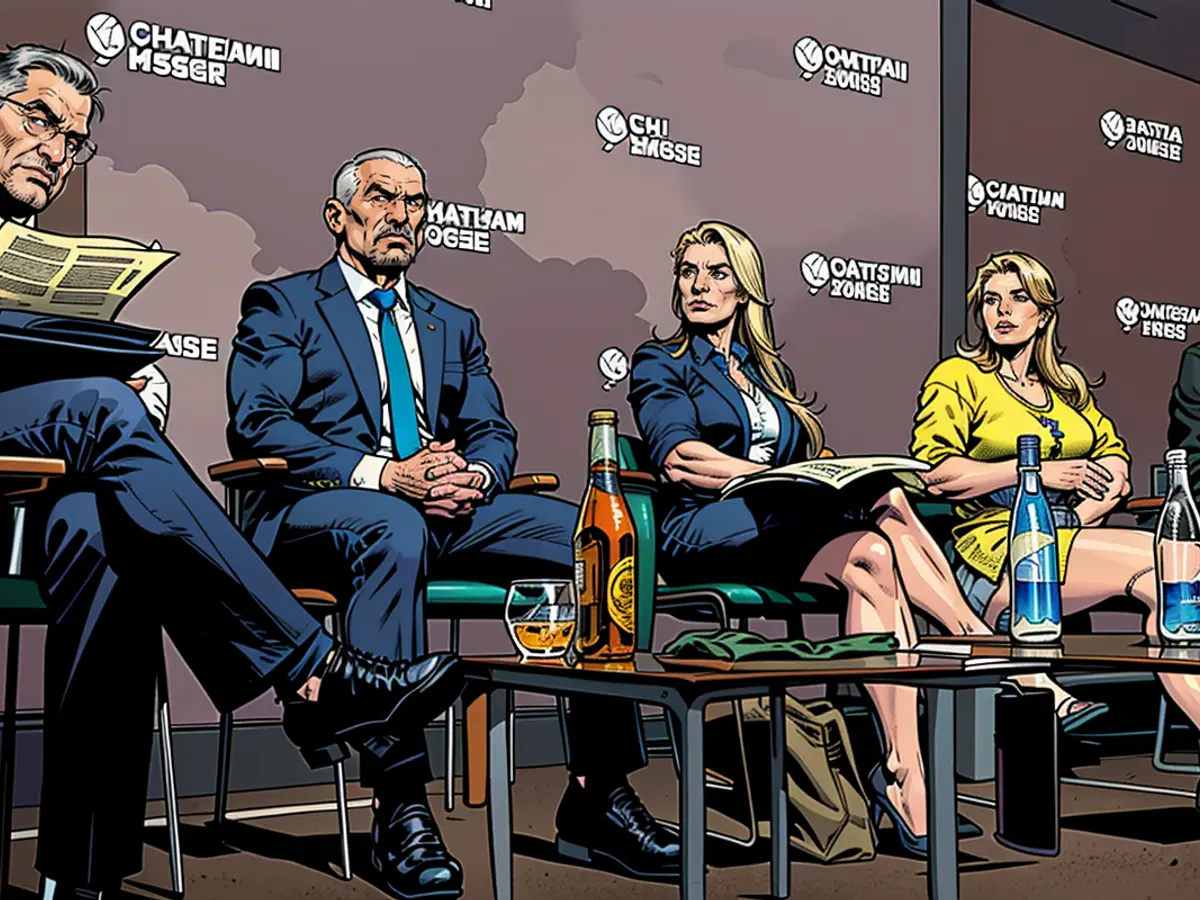Meeting in Berlin - Ukraine's head of reconstruction steps down.
There's a loud bang at the start: The day before the conference for rebuilding Ukraine in Berlin, the head of the Ukrainian agency responsible for this issue, Mustafa Najjem, announced his resignation. "Making this decision on my own," Najjem wrote on Facebook. "My reason was the systematic barriers that stopped me from performing my tasks efficiently. Thank you to everyone who supported me and helped out!"
For the Ukrainian leadership under President Volodymyr Zelensky, Najjem's resignation is an uncomfortable sign at a particularly inopportune time. The native Afghan is a legend in Ukraine and is seen as a symbol of integrity.
Najjem had previously worked as a journalist for Ukrainska Prawda and revealed many scandals under the then-president Viktor Yanukovych. With a Facebook post in November 2013, he played a significant role in the mass protests against Yanukovych and his pro-Russian policies on Maidan in Kiev. During the subsequent realignment of the country towards the West, Najjem briefly served in parliament.
Criticism of Donor Countries
Just a few days before his departure, Najjem gave an interview to Capital in which he discussed the challenges of the reconstruction, which was already taking place during ongoing warfare. "It's about doing everything we can now to help people continue with their lives," Najjem said, whose brother is currently fighting on the front lines. "We're in a survival phase. How do we create conditions that allow us to fight and win the war?"
At the site of the massive Kakhovka Dam, which was supposedly destroyed by Russian troops, Najjem's agency helped the affected people quickly. "We have given 1.5 million people access to drinking water," Najjem stated. "We managed to do that in record time." However, the chief of the agency also admitted to "politics, self-interest, and corruption" that continuously interfered with his work. A few weeks ago, Najjem openly declared that a Ukrainian parliamentarian had tried to bribe him.
Disagreement with the Authorities
The reasons for his resignation, Najjem explained in a long Facebook post: "Since last November, the agency's team has encountered continuous opposition and the creation of artificial obstacles." Among other things, money had not been passed on in appropriate ways. The authorities had also denied the approval of construction projects in several instances. "These actions resulted in negative consequences, which I have reported on various occasions before. Late payments for contractors diminish trust in the state; delays in funding slow down construction work and even cause it to come to a halt in certain places, leading to a loss of confidence among both the authorities and the population," Najjem wrote.
Najjem criticized donor countries and international aid institutions like the European Investment Bank and the World Bank in his discussion with Capital. "You cannot treat Ukraine like a European nation, because it is not there yet and is still at war," he said. "You cannot be so slow and bureaucratic like in those countries. They have time and can afford to plan everything."
Najjem particularly criticized the responsibilities of transparency and accountability, which he believes slow down processes and are not suitable for a country at war: "These processes are still just as slow as before the war. They won't change." In addition, his agency is short on staff to design and implement the ongoing reconstruction. "We certainly need more people to plan and implement reconstruction work."
Finally, regarding Ukraine's future, Najjem sees his country at a fork in the road between developing towards Afghanistan or towards South Korea. It hinges significantly on the EU and the US, with which path the country can take. "We're strategizing for our country, but it's evident that we can't make it on our own," he acknowledged. The Ukrainian population, however, is hopeful for a change. "The new generation will be more mature, and the country's issues will be able to be resolved much quicker."
Read also:
In the wake of Najjem's resignation, discussions about corruption in Ukraine's reconstruction efforts have gained traction. Despite Najjem's agency successfully providing access to drinking water for 1.5 million people at the Kakhovka Dam, he publicly accused Ukrainian officials of politics, self-interest, and corruption hindering his work.
Amidst ongoing tensions in the Ukraine war, Najjem criticized donor countries and international aid institutions for their slow and bureaucratic approach, which he believed was inappropriate for a country at war. Najjem emphasized the need for more staff and efficient processes in order to accelerate reconstruction efforts and propel Ukraine towards a brighter future, similar to South Korea's development.








